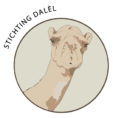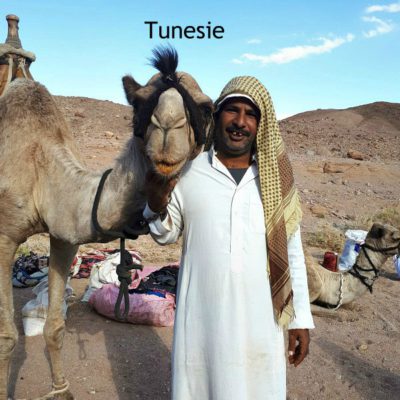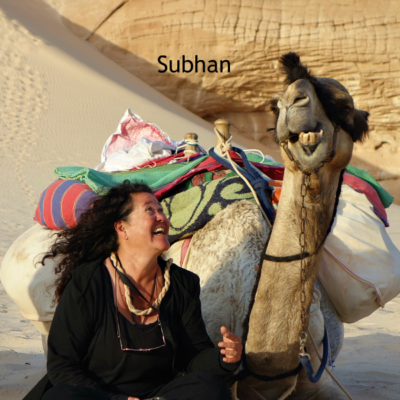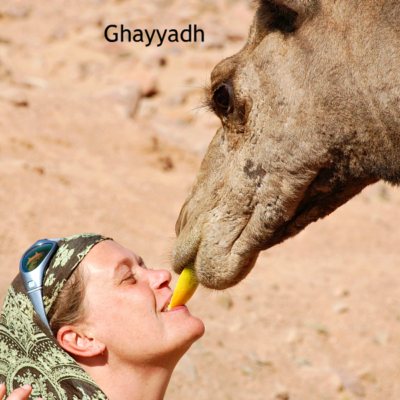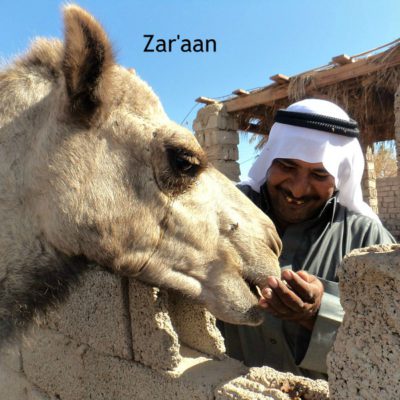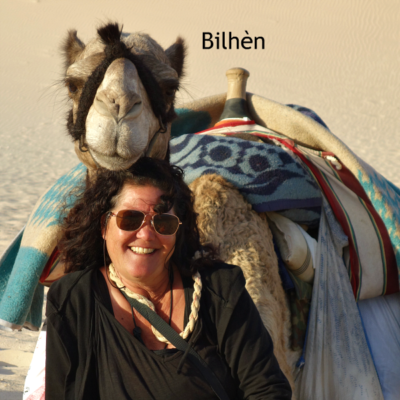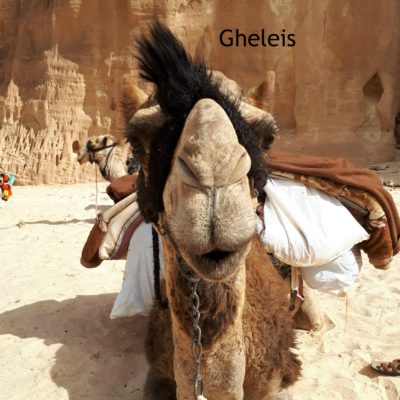CASTRATION/GELDING PROJECT
This project is unique in Sinai – and perhaps in the entire Middle East – because castration of Camels is not done among Bedouin, partly due to religious views.
However, gelding of male camels contributes enormously to their well-being!
In October 2016 we had our first castration round for six camels and in October 2020 we had our 2nd round!
Why gelding contributes highly to camel well-being
Quite simple: because most camel bulls are not used for breeding…
Result is: they have no outlet for their rutting hormones!
This leads to:
– Unmanagable behavior during rut.
– Potential risk of human-animal conflict.
– Some camels change behaviour so much that we even may speak of danger to their owner and to people in general.
– Self-risk: the camels injure themselves.
– Becoming harmful towards other camels.
– Very little to no food and water intake during rut season, which can last up to 3 months, causing the camel to drastically lose weight.
– They then need a full summer to return to their normal condition and weight. After which the entire cycle starts again.
Exceptional change of mentality among some Bedouin
Castration and sterilization in animals is not common in Bedouin culture and certainly not for Camels. This has everything to do with points of view toward masculinity as well as with religious reasons.
At the same time, because of the changing way of life in the region (becoming more sedentary (less nomadic) and with the arrival of pick-up trucks), the Bedouin do not make long, exhausting journeys with their bulls in rut like in the old days, whereby the male camels had an outlet for their hormones.
It is therefore quite exceptional that some Bedouin are now open-minded towards operative castration and see that it is a big improvement for some camel bulls!
Because it is through Musa, team member of the Foundation, that the Foundation went looking for a suitable veterinarian for operative castration!
Now that other Bedouin see the difference, even an elderly Bedouin has now changed his point of view and now his camels have been castrated too!
In search for a good veterinarian
In the summer of 2016, the foundation was busy with three veterinarians, two Egyptian and one Dutch.
And one veterinarian stood out above the rest: Dr. Mohammed!
This Egyptian veterinarian was a team leader mobile clinic in Cairo of an International Animal Welfare NGO: Brooke Hospital for Animals.
In Oct. 2016 & 2020 besides gelding 10 camels, he also examined and treated 12 camels and gave a training session for the Bedouins and the Foundation!
And so another goal of the foundation that year also became reality: Medical Care for Camels!
Dr. Mohammed always comes on his own behalf. He therefore has to take leave in order to visit us.

♥ Dr. Mohammed
Why Dr. Mohammed
- because of his combination of professionalism and love for animals.
- because of his excellent references, and he also helps the Camels at the pyramids near Cairo in his spare time.
- Because his specialization as a veterinarian is Working Animals. At the Brooke Hospital for Animals where he worked in Cairo, this mainly concerned donkeys and horses.
- Besides Arabic, he also speaks the cultural language of the Bedouin & also speaks excellent English.
- He very generously does not ask money for his time.
- The costs for anesthesia etc are cheaper than when we had chosen a Dutch vet.
- The travel expenses are less expensive than for a Dutch veterinarian.
- Dr Mohammed himself came up with the initiative to also provide Information & Training on site and also offered to examine and treat camels while he was with us.
- But most of all: because he performs the operations under sedation and local anesthetic instead of under general anesthetic!
In this matter he is unique. The other veterinarians perform the operation under general anesthetic which in this case involves unnecessary additional risk for ruminants and is only done as it is easier for the operating vet.
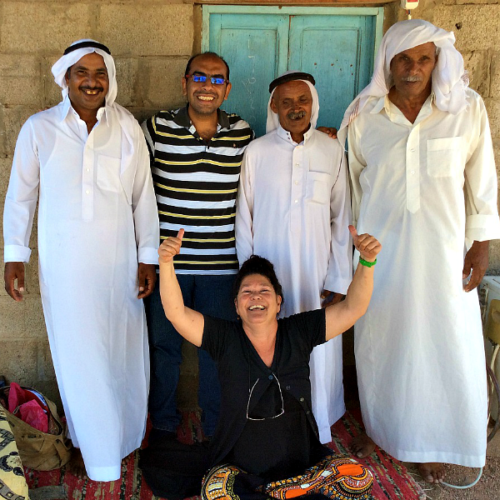
Costs per Castration Round
Even though Dr. Mohammed very generously asks no money for his time, there are still costs for the Foundation.
Travel expense for Dr. Mohammed:
-Domestic flight Caïro – Sharm el Sheikh and vice versa
This is cheaper than an international flight if we had chosen the Dutch vet.
-Transfer Sharm el Sheikh vliegveld to Dahab and vice versa.
Accommodation for Dr. Mohammed
Costs for anesthesia, needles, gauzes, etc
Costs for sedation and local anesthetic, needles, syringes, disinfectants, gauze pads, antibiotics etc, for the castrations:
In 2016 this came to 65 euro per Camel x 6 Camels = 390 euro total.
If we had opted for one of the other two veterinarians, then these costs would have been €150 – 180 euros per camel in 2016, instead of €65!
Food, drinking water, water for the operations and transport:
– Several transport rides by Toyota pick-up from Dahab to the Desert and vice versa with, among other things, water tanks for the medical procedure.
– Food & drinking water for those who are present at the castrations in the Desert, incl. for dr. Mohammed.
Note: Dahab is not a suitable place to castrate camels. On day 4 the castrated camels can go back to Dahab. After care takes 2 weeks.
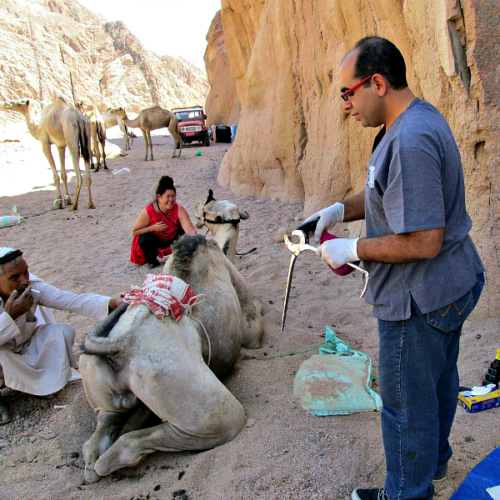
The following 6 Camels have now been neutered
It is a world of difference for both the owners and the camels themselves! There is no more human-animal conflict and so much more peace and good health for the camel itself!
The ages of these 6 camels at the time of their castration vary between 5 and 16 years old. Now that we are several years further on, we also know that castration later in life is also worthwhile!
A male camel can be gelded from 4-5 years old. Earlier is not recommended because they are not fully grown yet.
And in October 2020 we had a second round with Dr Mohammed:
The following 4 Camels have been helped:
Abdèn (born 2014) – Hindi (born 2010) – little Dalèl (born 2015) – Asfur (born 1994)
The 2nd testicle of Gheleis unfortunately couldn’t be reached, just like on the first round. The testicle was too deep in the abdomen.
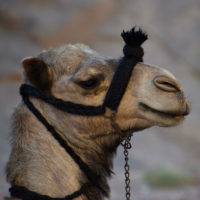
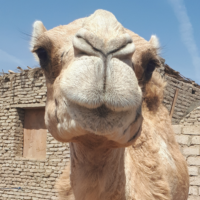
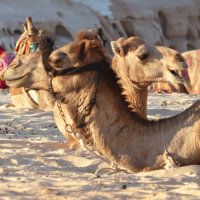
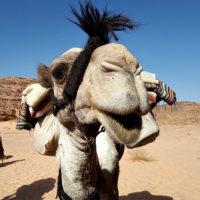
The costs per castration round are in the order of €1000 in total.
This depends on how many camels participate and on the prices and exchange rate at the time of the procedure.
For example, the prices were different in 2020 than they were in 2016.
